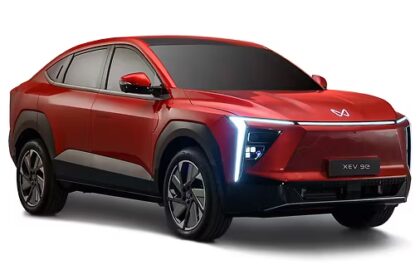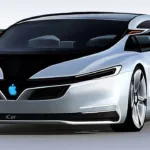Introduction
India’s EV market is a combination of government stimulus, rising fuel prices, and growing consumer awareness of green mobility. To attract foreign automakers and boost indigenous EV manufacturing, the Indian government has launched the Scheme SPMEPCI. This policy provides a substantial cut in import taxes—reducing them from the usual 70–100% to a mere 15%—to businesses of Mercedes-Benz that are prepared to invest heavily in domestic manufacturing facilities.
The plan is meant to act as a gateway for overseas players to enter India’s domestic EV space, with terms involving a minimum investment of ₹4,150 crore and timelines to begin local production in three years. While the development has been applauded by a few new and prospective entrants in the market, one of the world’s most illustrious luxury carmakers, Mercedes-Benz, has followed a different path.

India’s EV market and government incentives
- India’s EV market is growing at a rapid clip, fueled by increasing environmental awareness and surging consumer interest in green mobility.
- The FAME initiative has served to promote initial-stage EV sales.
- The government recently announced the SPMEPCI with lower import duties for foreign carmakers investing in domestic EV manufacturing.
EV duty exemption scheme for local EV manufacturing
- It was introduced to promote local electric vehicle manufacturing.
- It provides a lower import duty of 15% on the import of electric vehicles by companies that undertake a commitment to establish manufacturing units within India.
- These eligible firms can import up to 8,000 EV units a year under this lower duty.
- The plan has a minimum investment commitment of about ₹4,150 crore within three years.
- Seeks to invite foreign automakers to invest in India and help grow India’s EV manufacturing base..
Overview of the EV Duty Exemption Scheme
The Government of India launched the SPMEPCI to spur the development of the EV sector by encouraging local manufacture and attracting foreign automakers. The scheme is highly beneficial to overseas electric vehicle manufacturers that invest heavily in local production.
- Lower Import Duty: Firms joining the program can bring in electric passenger vehicles at a reduced import duty of 15%, which is much lower than the regular duty of 70–100%.
- Import Volume Limit: Authorised producers can import a maximum of 8,000 electric vehicles every year at this reduced rate of duty.
- Validity Period: The scheme remains in force for three years from the approval date.
Eligibility Conditions
- Investment Pledge: The manufacturers have to pledge to invest at least ₹4,150 crore (nearly $486 million) in three years towards local manufacturing units.
- Local Manufacturing: The firms must set up or upgrade manufacturing units in India to produce electric vehicles locally.
- Conformity and Tracking: Regular monitoring ensures that manufacturers achieve their Investment and production goals, remaining eligible for duty benefits.
Purpose and Objectives of the Scheme
- Attract Foreign Investment: The program is designed to attract international EV players to invest in local production capacity and expand their portfolio in India.
- Boost Domestic Manufacturing: Incentivising local manufacturing and assembly, the government seeks to minimise reliance on imported cars and build a strong EV ecosystem.
- Enhance Affordability: Reduced import duties contribute to the lowering of the price of electric vehicles, making them more affordable for Indian buyers.
Mercedes-Benz’s Decision
Mercedes-Benz has formally declared that it will not join the government’s SPMEPCI. The luxury car manufacturer has taken a different strategic direction, opting to cash in on its current local manufacturing facilities instead of seeking import duty exemptions.
- Mercedes-Benz has chosen not to enter the EV duty exemption scheme amid the possible cost advantages it promises.
- The leadership of the company has noted that its proven manufacturing base in India lessens the pressure of depending on such incentives.
Reasons Behind the Decision
- Existing Local Manufacturing Capacity: Mercedes-Benz has already made significant investments in local EV manufacturing infrastructure.
- Significant Investment Made: Mercedes-Benz has invested more than ₹3,000 crore in its Indian manufacturing units, indicating a strong local manufacturing presence.
- Emphasis on Quality and Brand Positioning: Instead of being concerned with import duty advantages, Mercedes-Benz focuses on sustaining its luxury brand identity through local assembly and superior production quality.
Pune Plant and Locally Assembled EV Models
- Mercedes-Benz’s Chakan, Pune plant, is instrumental in the company’s Indian strategy.
- The local production facility produces electric vehicles like the EQS SUV, an electric luxury flagship model, locally addressing the increased demand for EVs among luxury buyers in India.
- Through increased local production, Mercedes-Benz also seeks to enhance supply chain efficiency and lower Indian customer delivery times.
Implications of the Decision
Mercedes-Benz’s decision to participate in the government EV duty exemption scheme has the company’s confidence in its current positioning and the broader Indian electric vehicle market.
- Mercedes-Benz demonstrates high confidence in the long-term growth and potential of India’s EV market.
- The firm feels that its current domestic manufacturing capacity forms a sound basis to respond to future demand without externalities from import duty incentives.
- The action indicates Mercedes-Benz is counting on steady demand growth for luxury EVs among Indian buyers, fuelled by changing tastes and growing environmental awareness.
Contrast with Other Automakers
- Other foreign automakers, particularly new competitors, are likely to utilise the scheme to cut import duties and enter the market at competitive prices.
- Mercedes-Benz’s move is a contrast to these players, who can use the scheme as a launching pad before building deeper local manufacturing bases.
- This difference reflects varying strategic options—while some prioritise rapid market entry through import concessions, Mercedes-Benz prioritises establishing strong local production capabilities.
Effect on Pricing, Competitiveness, and Market Strategy
- Forgoing the duty exemption might be equivalent to Mercedes-Benz’s EVs having relatively higher import bills than rivals who are making use of the scheme.
- Local assembly initiatives of the second-largest premium carmaker, however, could assist in neutralising part of the costs, enabling it to be competitive in terms of price in the premium EV market.
- Mercedes-Benz will likely emphasise brand value, quality, and customer experience as key differentiators, rather than focusing on price competition.
- The strategy can also enable greater control of supply chains, quicker delivery times, and greater customisation capabilities for Indian buyers.
Broader Industry Perspective
The launch of the EV duty exemption scheme (SPMEPCI) has already started to shape the competitive patterns of India’s electric vehicle industry. It is a warning from the government that India is determined to emerge as a significant global hub for producing EVs.
- The 15% concessional import duty is turning India into a more competitive market for foreign EV brands looking for an entry point.
- Car manufacturers without local units now possess a quicker, more economical means of introducing their electric variants into the market with future manufacturing investments in mind.
- The scheme will drive the introduction of sophisticated EV models at a faster pace, bring variety to consumers, and generate wholesome competition in the market.
Other Automakers and Industry Experts’ Reactions
- New players such as Tesla and some European and East Asian manufacturers are said to be considering the scheme as a way into India.++
- Industry experts believe that the scheme will trigger foreign direct investment (FDI) into India’s automotive industry, promoting technology transfer and skill development.
- Mercedes-Benz view the scheme as more favourable for entrants than for firms which already have strong manufacturing roots in India.
Challenges and Prospects of EV Manufacturers in India
Prospects & Challenges:
- Enlargement of domestic supply chains for batteries, components, and charging infrastructure.
- There is increased consumer demand for EVs amid rising fuel prices and growing environmental concerns.
- The government promotes green mobility by investing in infrastructure.
- Heavy initial investment costs to establish manufacturing facilities.
- Limited charging points in semi-urban and rural regions.
- The price sensitivity of Indian customers may restrict the take-up of high-end EVs.
Compariosn Table
| Brand / Automaker | Participation in SPMEPCI Scheme | Local Manufacturing Presence in India | Key EV Models Offered in India | Strategic Approach |
| Mercedes-Benz | Opted Out | Yes – Chakan, Pune plant | EQS 580 4MATIC, EQS SUV | Focus on local manufacturing, premium positioning, long-term market presence |
| Tesla (expected) | Likely to Participate | No | Models 3, Y (expected) | Use reduced duty to enter India, then invest in local production |
| BMW | Likely to Participate | Yes – Chennai plant | i4, iX, MINI Electric | Expand EV lineup, may leverage duty cuts for select imports |
| Hyundai | Likely to Participate | Yes – Chennai facility | IONIQ 5, Kona Electric | Mix of local assembly and imports under concessional duty |
| BYD | Likely to Participate | Limited local assembly | Atto 3, Seal EV | Aggressive import strategy with plans for expansion |
| Kia | Likely to Participate | Yes – Andhra Pradesh plant | EV6 | Limited units via import duty scheme while scaling local manufacturing |
Conclusion
Mercedes-Benz’s reluctance to remain out of the EV duty exemption program reflects its long-term, locally oriented strategy for India. Instead of pursuing short-term import advantages, the company is counting on its current manufacturing investments and the resilience of its Chakan plant to fulfil future demand. This strategy places Mercedes-Benz on a quality, brand value, and sustainable growth pedestal, even at the cost of sacrificing some cost benefits in the near term.
The shift serves to underline the different strategies being pursued by auto manufacturers—some taking advantage of incentives to make early entry, some establishing stronger local ties from day one. As the EV industry matures, the interplay of government incentives, increasing consumer acceptance, and improved infrastructure will convert India into a hub for electric mobility. For Mercedes-Benz, the future will probably mean widening its domestic EV portfolio, preserving its luxury positioning, and benefiting from the rising demand for premium electric mobility in the nation.
FAQs
Q1. What is the EV duty exemption scheme (SPMEPCI) of India?
The SPMEPCI provides a lower import duty of 15% to the eligible automakers who agree to invest a minimum of ₹4,150 crore in local production of EVs within three years.
Q2. Why did Mercedes-Benz decide not to opt for the scheme?
Mercedes-Benz already has considerable in-built production capability in India, especially at its Chakan facility near Pune, and has invested more than ₹3,000 crore. The company feels that it does not require import duty concessions to be competitive.
Q3. What Mercedes-Benz EVs are locally produced in India?
Models such as the EQS 580 4MATIC and EQS SUV are produced locally at the firm’s Chakan plant.
Q4. How will this move influence Mercedes-Benz’s EV prices in India?
Although it omits some cost benefits, local production enables Mercedes-Benz to remain competitive with its premium EV prices without compromising quality.
Q5. In what way does the scheme benefit other manufacturers?
New players and firms without local manufacturing capacities can leverage the lower duty rate to import EVs into India at reduced prices, while establishing manufacturing capacities in the long term.





